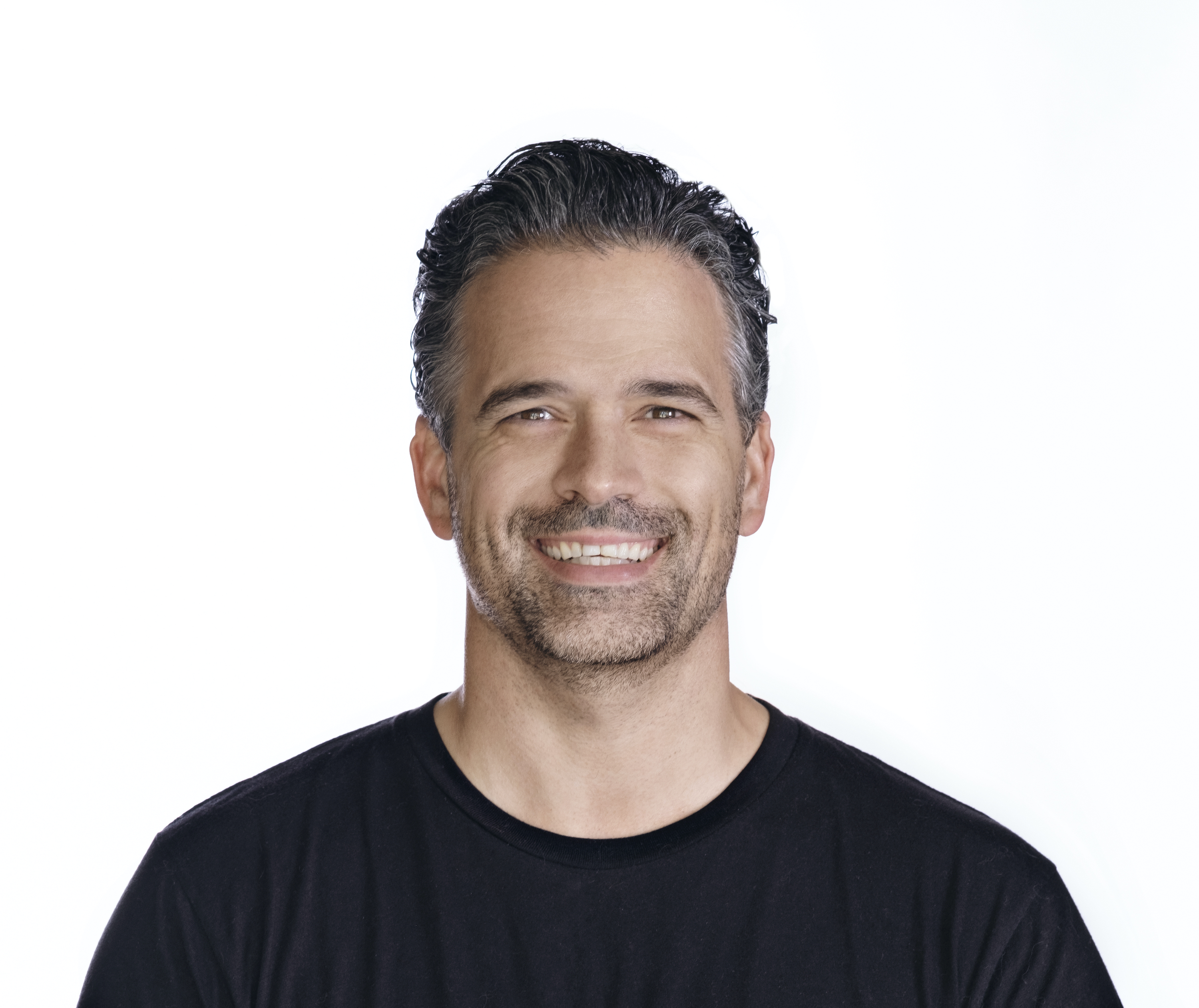The first book I remember reading was in the summer of 2001.

I was 20 years old, and up until that point in my life I’d felt no interest in reading.
You see, I come from a stereotypical West Virginia family, complete with a coal-miner dad and a stay-at-home mom. Apart from a few fleeting moments of academic interests, reading and education weren’t a personal interest and weren’t emphasized at home. Playing sports and having a good time with friends were all that mattered.
But things changed for me that summer. In two really big ways.
I had just met a girl (who is now my wife), and she liked to read. After our first conversation, I felt intimidated. She was intelligent, witty, and always kept up with current events. As for me, I was the proverbial meathead in college. I was playing football, and anything that whiffed of academics repulsed me.
Well, I wanted to see her again but knew I needed something intelligent to talk about the next time I saw her. So, I visited a Waldenbooks store over the weekend, browsed the aisles, and bought a copy of The Art of War by Sun Tzu.
I can’t recall why I picked up this specific book. But knowing who I was back then, I would wager it had something to do with the word war in the title.
After getting home, I sat down and read the book. While I found the writing archaic, clunky, and difficult to understand, my interest in impressing this new girl drove me to read the entire book.
I can’t say our second dinner date at Chili’s in Charleston, WV paved the way for our marriage or that my love for books radically changed after reading The Art of War. But over the next few years, my wife and I did get married and I slowly realized something else… I was reading a lot.
How to read more books (a plan anyone can use)
Today, I’m a bibliophile.
My house is filled with books. Books sit on top of my desk. Books are stacked beside my desk. Books sit on top of my nightstand. We have multiple bookcases around the house, and we have storage containers full of books.
I read constantly, listen to numerous audiobooks, and read out loud to our kids. I even work in the publishing industry. Needless to say, my life revolves around books.
Over the past few years, I’ve been able to read over 100 books per year. This includes books I read for work, books I read or listen to for myself, and chapter books I read to our kids.
Now, I don’t have a ton of spare time. I’m married, have five kids, two cats and one dog, work full-time, and my family and I are involved with a church. But, I love reading, so I’ve committed to being purposeful with my time—I follow a reading plan.
You see, our time is limited. There are millions of books in circulation and thousands more being published weekly. It’s impossible to read everything that has been or will be written. So, we have to choose wisely.
If you want to read more books, then hear me loud and clear: You can.
Below is the process I’ve been using the past several years to develop my personal reading plan. For full disclosure, there are times I follow this reading plan religiously and there are other times when I forget it even exists.
But it’s helped me read more books. If you’d like to do the same, then I encourage you to not only follow these five steps, but to carve out a small part of your day to develop your reading plan.
Before moving forward, I encourage you to download this free reading log to help you get the full benefit out of this process.
Step #1: Clarify your reading goal
Why do you want to read more books?
Do you want to learn a new skill? Are you conducting research for a new book or project? Are you interested in reading a captivating story?
There are many reasons why you should read more books. But for the sake of making your reading plan, it’s important to clarify your reading goals before moving forward. This will not only help you build your personal reading plan, but it will help you push through, change your habits, and read more books when you feel like quitting.
For me, I read books to help me professionally; gain new insights as a husband, parent, and friend; learn about history, current events, and influential people; explore personal interests; and, seek entertainment.
Action step: Identify 1-5 reasons why you want to read more books.
Step #2: Make time to read
Reflect upon your weekly rhythms. Now, where can you fit in additional time to read?
Like anything in life, if you want to start something new and accomplish a goal, then you’ll most likely have to cut back on something else. If you’re currently not reading as many books as you like, then you’ll have to reprioritize your schedule to make it happen.
When it comes to reading more, don’t assume you can simply add a new to-do to your daily schedule and get it done. Trust me. It won’t happen.
Listen to your life. Look for ways you can make the time to read. Whether it’s taking a book with you to run errands, turning the T.V. off at night, or reading classic books with your kids, identify ways you can naturally incorporate reading into your life.
For some of you, you might be able to read one book per month. For others, you might be able to read one book per week or read a 240-page book in two hours. Regardless of your situation, it’s best to set a realistic goal for yourself.
For example, if you haven’t read a book in a while, then it’s probably not best to plan on reading 100 books this year. Instead, make a plan for how many books you will read in the next three months. This way you can get a better idea of what you’re capable of doing. I would rather see you set up to succeed than crash and burn in a fire of disappointment.
Action step: Determine how many books you want to read in the next quarter or year. Now, make time in your schedule to accomplish your reading goal.
Step #3: Pick categories or genres
I know you already have some books in mind you want to read. But before you finalize your choices, it’s best to think through the types of books you want to read in broad categories.
Identifying these categories will help you select specific books to fulfill your goals and ensure you maintain a well-balanced reading diet.
At the moment, I have six categories I read through:
- Business
- History
- Theology
- Culture
- Children’s
- Fiction
I decided on these categories based on the goals I identified above. For example, for the business category, I’ll regularly read books on marketing, publishing, and entrepreneurship. With this category, I’m constantly reading books that help sharpen me professionally.
The children’s category contains the books I read out loud to our kids. This includes some fun books and short titles, but mostly it involves classic books.
The other categories I’ve identified, such as history, theology, and culture, are areas of personal interest. Now, for fiction, I’m not necessarily a huge fan of the genre, but reading in this category helps stretch me as a reader and learn storytelling from some of the best writers.
When it comes to identifying the categories you want to read, think through what will help you accomplish the goals you identified above. What types of books will most influence your life, work, hobbies, and aspirations?
If you need help with parenting, plan on reading a few parenting books. If you’re looking for new business ideas, pick up some titles on entrepreneurship. If you’re planning on starting a garden this year, then read a few books to help you get started.
Here is a short list of different genres for you to consider:
- Religion
- Mystery
- Business
- Travel
- History
- Science
- Comics
- Biographies
- Fantasy
- Children’s
- Literature
Now, categorizing your reading isn’t necessary in every season of your life. There were times in my past when I had to focus on only 1-2 categories because I was trying to learn a new skill or conduct research for a new project, like writing a book.
Action step: Pick three or more categories or genres that will help you reach your goal or 1-2 categories to help you learn a new skill or conduct research.
Step #4: Choose your titles
Here comes the fun part.
You have a reading goal. You made a plan. You know what categories you’re going to read. Now you get to pick the individual books you’re going to read.
Don’t get bogged down choosing books. The main thing is to identify enough books to read for the next 2-3 months to help you fulfill your reading goal.
If you’re having a hard time figuring out what you want to read, then pick up a book you’ve previously read (and liked) and see what the author referenced in the footnotes or index. This is a great way to discover new books.
You can also ask your friends, scan the best-sellers lists or Goodreads, read old books, explore similar titles of your favorite books, and more.
Now, these book choices are not set in stone. Feel free to rearrange the individual titles you want to read. Your goal with this step is to identify what books you’re going to read.
So, if you received a great recommendation or feel you can’t handle one more business book, then take a break. Read something else.
Action step: Make a list of 3-5 books you want to read for every category you chose.
Step #5: Complete your reading calendar
This is the final step.
Use the reading log to a the categories, book titles, and authors you want to read this month. Keep up this process until you complete as many months as you’re able.
The key is to not necessarily fill out the entire calendar. The goal is to know what you’re reading this month and next so that you can prepare to have what you need to read. This way you’re not waiting around gathering what you want to read when you can be reading.
My calendar is currently filled out for the next three months, and I have a laundry list of books identified that I want to read. But my list regularly changes.
Reading is a fluid activity. If you’re not enjoying a book or you already grasped what the author is trying to say in the first 50 pages, then feel free to abandon it. There’s no reason to plod through a book if you don’t want to or have to.
Your turn
If you want to read more books, what’s holding you back? Is it purpose? Time? Something else?
P.S. Don’t forget to download the reading log to help you develop your reading plan.
Originally published at Copybot.


